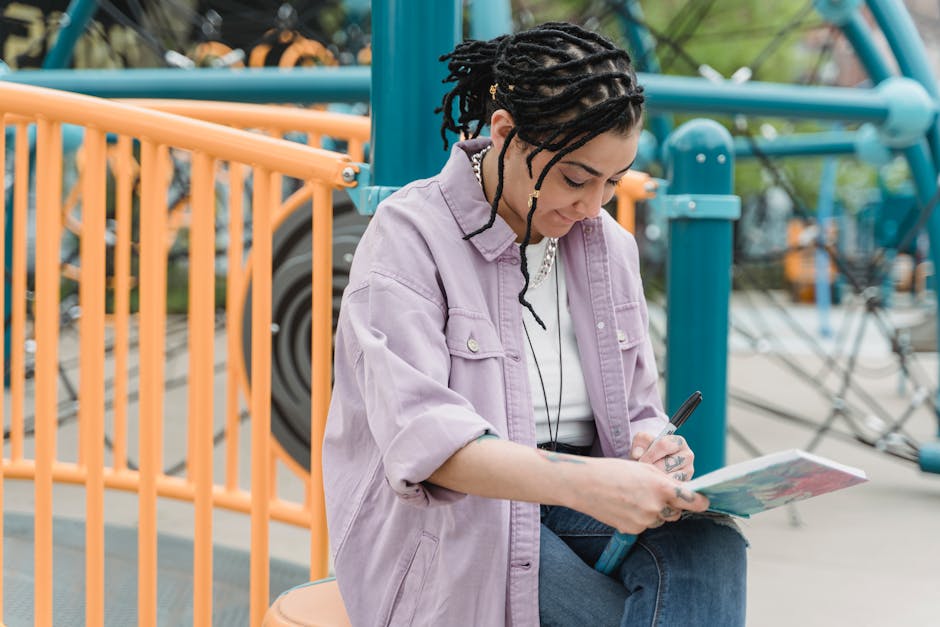Creativity, a vital ingredient in poetry and creative writing, often seems elusive. While innate talent plays a role, cultivating a creative mindset through targeted exercises can significantly amplify poetic inspiration. This exploration delves into specific writing techniques designed to unlock and nurture imaginative pathways.
A crucial aspect of fostering creativity lies in challenging established thought patterns. Traditional exercises, often overlooked, can surprisingly serve as potent catalysts. One powerful approach involves adopting a “stream-of-consciousness” writing style. In this technique, writers abandon the editing process, allowing thoughts and images to flow freely onto the page without judgment. This uninhibited approach can unearth hidden connections and surprising metaphors, paving the way for novel poetic expressions.
Another valuable strategy is the concept of “forced association.” This exercise requires writers to connect seemingly unrelated concepts or images. For example, a writer might start with a colour, say emerald green, and then explore its associations perhaps a lush jungle, a vibrant jewel, or a forgotten dream. This process, forcing the mind to link seemingly disparate elements, can spark original metaphors and surprising insights.
Beyond these fundamental approaches, a myriad of tailored exercises can further stimulate poetic creativity. One particularly effective method is the “five senses” exercise. By focusing on the details of a specific place, object, or moment, writers can meticulously describe sensations, sounds, smells, tastes, and textures. This exercise, meticulous in its attention to sensory detail, can generate rich imagery and profoundly evocative poetry.
Likewise, the “what if” exercise presents an intriguing path towards innovation. Beginning with a commonplace observation, writers can imagine alternative possibilities. “What if the wind could speak?” or “What if a tree could remember?” such questions can open doors to unique perspectives, generating a fresh understanding of the everyday and fueling inventive imagery.
A powerful technique lies in the use of prompts, either structured or open-ended. A structured prompt might ask for a poem based on a specific image, a specific emotion, or a particular historical event. These prompts can provide a focused point of departure, while open-ended prompts encourage writers to explore their own interests and experiences, yielding diverse and uniquely personal poems.
Exploring unfamiliar topics or perspectives is another significant pathway to heightened creativity. Challenging personal biases and preconceptions can liberate the imagination and lead to fresh insights. Consider exploring a foreign culture, a different historical period, or a seemingly mundane subject from an unconventional angle. This approach not only expands creative horizons but also enriches the writing with fresh and nuanced perspectives.
In addition to these thematic exercises, specific poetic forms can also inspire creative exploration. Sonnets, with their rigid structure, can force writers to hone their language and imagery. Free verse, conversely, encourages a more expansive, less constrained approach. Familiarizing oneself with different poetic structures can stimulate innovative use of language and shape the aesthetic approach to a poem.
An underappreciated aspect of creative writing enhancement is the power of deliberate revision. After completing a piece, taking a step back and analysing its strengths and weaknesses can reveal avenues for improvement. What elements are truly evocative? Where can imagery be strengthened? Where might the language be more impactful? This iterative process, crucial for all forms of writing, is particularly important for honing poetic skills and enhancing creative prowess.
Embarking on a collaborative writing experience can also prove a catalyst for creativity. Sharing ideas, challenging interpretations, and receiving feedback from peers can lead to a dynamic exchange of perspectives, sparking new ideas and shaping the work into something more profound. A writing group or workshop offers a platform for mutual inspiration and shared creativity.
Ultimately, developing creative prowess in poetry and writing isn’t about finding a single magic bullet. Rather, it’s a journey of exploration and experiment, an ongoing commitment to pushing boundaries and embracing the unknown. Each exercise, from employing stream-of-consciousness writing to exploring unconventional perspectives, serves as a tool in a multifaceted toolkit for the aspiring poet. Persistent practice, coupled with the commitment to exploring these techniques, will undoubtedly ignite the spark of creativity within, leading to more meaningful and compelling poetic expression. The journey is as vital as the destination.
